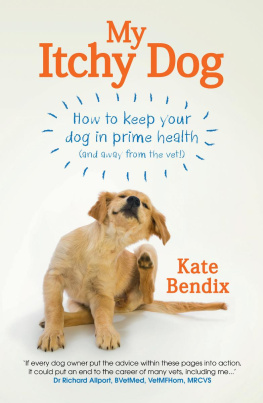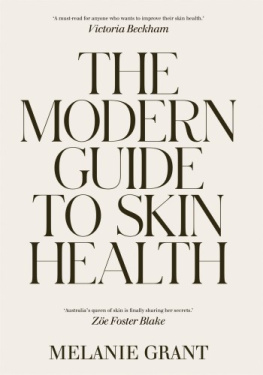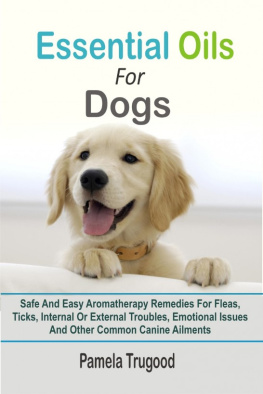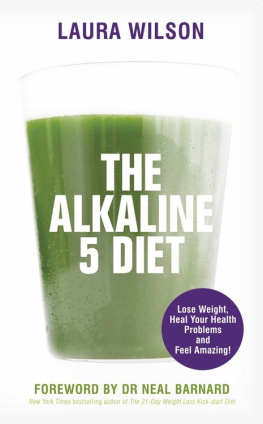It may seem a little strange for a veterinary surgeon to write the foreword to a book that proudly states it will reveal how to keep your dog in prime health (and away from the vet). But I sincerely believe that if the veterinary profession did its job properly we would more or less make ourselves redundant. Of course, some of every vets working life is spent in dealing with emergencies such as road accident cases, performing useful surgery (such as neutering), and treating serious infections. But the majority of our time is spent on trying to deal with more minor, non-life-threatening problems. These include itchy skin; smelly and waxy ears; sticky or watery eyes; fleas, ticks and worms; stiff joints and sore gums and dental disease. Exactly the problems you will find discussed in this excellent book.
In my own work as a holistic vet, I spend a great deal of my time explaining to clients the importance of a grain-free, kibble-free diet in promoting good health. I expound my views on the unnecessary use of repeated vaccination boosters; about the overuse of antibiotics and how it leads to the rise of resistant infections; and how the same will happen with repeated use of flea treatments and wormers (its already happening in farm animals).
I suggest using natural parasite repellents; doing worm counts rather than giving routine wormers; and many other natural medicines and supplements to add to a good diet to keep pets well, rather than treat them when they are sick.
Kate Bendix has done a fantastic job in distilling such ideas and many more into an easy-to-read, practical guide to natural ways of keeping your dog healthy. I recommend it highly even with the knowledge that if every dog owner bought a copy and put the advice within these pages into action it could put an end to the career of many vets, maybe including myself.
Did you know that, on average, your dog will cost you 26,000 during his lifetime? But heres the real kicker. That figure does not include the cost of healthcare. And, as all pet owners can attest, nothing makes you appreciate the NHS quite like coughing up your hard-earned cash on a vet consultation with a simple blood test thrown in. Thats easily 150 right there, before the cost of any treatment deemed necessary by the result.
I know its unseemly to drink before lunch but if you get that kind of news mid-morning youd be forgiven for giving the gin bottle the glad eye as you watch your much-longed for week in the sun disappear over the horizon.
But Kate, I have insurance, I hear you cry, my dogs pancreas could pack up and leave town tomorrow and Id be covered. So do I, my sweet, but thats an emergency situation. The question is, does your insurance cover you for treating a chronic condition for life? Most wont stretch to longer than 12 months, and how are you going to pay after that?
And what about the impromptu trips to the vet for a sudden illness, a stomach problem, for instance, which doesnt in the end require treatment? If your excess is 100 or even 150, as some are, that check-up and probotic paste wont be covered either. Wouldnt it be great to be able to pare those visits down to the bare minimum?
The solution to this potential fiscal bedlam is to keep your dog healthy and to mitigate any problems she may have by treating them yourself, as much as possible. Im not talking about a suspected broken leg, or for a moment insinuating that you bypass your vet altogether, far from it. Diabetes, cancer, heart problems: all these need the talented scrutiny of the veterinary professional.
No, what Im suggesting is that, for the most part, it is perfectly possible for you to treat the routine issues for which your dog might visit the vet yourself, by feeding a good diet, and by administering tried and tested supplements, herbs and natural remedies.
Itchy skin; allergies; gunky eyes and ears; creaky joints; a poor immune system: all these can be managed or sorted out permanently by taking matters into your own hands.
In the same way you can take care of everyday issues such as: fleas, worms, tooth decay and gum disease (none of which are covered by insurance) for a fraction of the cost of the well-trodden, conventional path. All it takes is sound, properly researched information, some common sense and a little bit of confidence. Which is precisely what you will find within these pages. By the end of this book you will be more than capable in the ear-cleaning department; you will know that a two-day runny tummy is likely to be just that, and how to act to alleviate the problem, not just the symptom; while a skin rash will be but a minor irritation for everyone concerned.
I know this because Ive been running a business based on these principles for the past eight years. Customers have turned up with their dogs in a horrible state of persistent ill health and between us weve brought them back to full strength.
One such customer, Mike, has a Jack Russell who had been visiting the vet for seven years with a chronic skin problem. One month on a new herbal treat we have developed and shes cured. Thats not too strong a word she has both her fur and her va-va-voom back!
Lisa adopted Staffordshire Bull Terrier Molly two years ago. Shes spent thousands of pounds on vet treatments for dermatitis, yeast problems and allergic reactions, which havent worked. Molly was still bald, her ears were bunged up and stinky and she was putting on weight as a side effect of the drugs she was on. We changed her diet, and got her on a decent shampoo and some temporary supplements. It took six weeks but shes a changed dog, and so much happier.
I guarantee you that by reading this book and following the advice and tips within it you can keep your dog healthy for the majority of the time, and save yourself money into the bargain. You will also stave off the long-term, chronic diseases of later life. Heres to that.
So, here we are. Weve landed at my favourite subject its the reason I started www.myitchydog.co.uk itchy skin.
As with humans, skin is the dogs largest organ. Its a marvellous, sophisticated piece of kit: it grows hair, feeds parasites and has a nice natural covering of a yeast called Candida albicans, which peacefully cohabits until something sets it off (see p.). However, unlike humans who can sweat all over as anyone stuck on the Tube or a train on a hot day can attest dogs can only sweat through the pads of their paws and the nose. Dogs do pant to release heat and cool down, but thats not the same as sweating. So a dogs skin, unencumbered by sweat, holds onto stuff dirt, dander and the like making it a feeding and breeding ground for all sorts of parasites.
A dogs skin is the gift that keeps on giving, to a critter.
Visits to the vet
In the top ten hit parade of reasons your dog visits the vet, skin problems come in at number two, after ear infections. However, when you factor in pyoderma (hot spots/bacterial infection) at number four and benign skin tumours just making the list at number nine, frankly, I think it deserves the top spot.
Itching, flaking, dry skin; weeping, suppurating wounds; and musty, yeasty, greasy skin are notoriously difficult to treat effectively because they are the symptom, never the reason for the current eruption on your dogs backside. Initially, your vet will look at treating a skin problem with steroids, which suppress the symptom the itching, weeping, flaking but rarely treat the cause. He or she may prescribe antibiotics (just in case there is an infection), offer strong flea treatments, and maybe even suggest changing to an expensive prescription foodstuff that no one is sure your dog needs, but lets try it anyway. All of which make skin problems a sore subject. Your dog is still chewing her paws, the pads are getting redder by the day, youre almost bankrupt with it all and yet youre no nearer to a solution.












